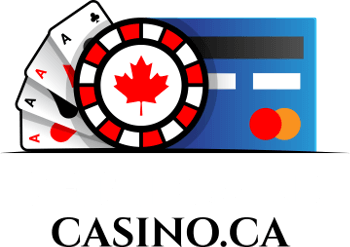The Difference between Bitcoin Forks
Understanding the Different Types of Bitcoin – BTC, BCH, BSV, SAT, UBTC
 In the beginning, there was Bitcoin. It was a miracle of digital engineering. From nothing, value was created, a prized commodity born from the sweat of tech-savvy programmers. For the next two years, the crypto-currency market remained Bitcoin’s domain. Since then, more than 7,000 altcoins (alternatives to Bitcoin) have come into existence.
In the beginning, there was Bitcoin. It was a miracle of digital engineering. From nothing, value was created, a prized commodity born from the sweat of tech-savvy programmers. For the next two years, the crypto-currency market remained Bitcoin’s domain. Since then, more than 7,000 altcoins (alternatives to Bitcoin) have come into existence.
While most of these altcoins were developed as a whole new species of digital currency, a few of them were bred directly from Bitcoin’s DNA. They’re generally easy to designate. Each of Bitcoin’s offspring – forks, as they’re technically defined – are specifically named to reflect their lineage. They include cryptos like Bitcoin Cash, Satoshi (SAT), and Satoshi’s Vision (BSV). Continue reading to learn all about these and others, their purpose, and how their value compares to that of the original.
Understanding the Different Units of Bitcoin |
|
The list below includes Bitcoin and each of the forks, or direct descendants, that we’ll be discussing today. Click on any one to read more about it. |
Bitcoin (BTC) – The Original Crypto |
|
Conceptualized in 2008 and unleashed upon the digital world in 2009, Bitcoin is the world’s first universally available cryptocurrency. It is decentralized, meaning it is not distributed, regulated or controlled by any government, and is not associated with any national or central bank. It is a 100% digital currency, therefore exists only in a digital environment, with all transactions recorded on a digital ledger (a.k.a. blockchain). I won’t go into too much detail on this page, since you can read a Complete Review of Bitcoin here. |
Bitcoin Cash (BCH) – A Fork in the Road |
|
As more and more people adopted Bitcoin, it became apparent that the technology needed improvement. While major financial institutions like Visa were processing upwards of 1,700 transactions per second – a mere fraction of the 65,000 they are capable of – Bitcoin was averaging just 7 transactions per minute. In an effort to pick up the pace, and to propagate the use of Bitcoin as a medium of transactional currency (not just a risky investment opportunity) Bitcoin Cash (BCH) was created as a fork of the Bitcoin Core. The hard fork of BTC into BCH took place on August 1, 2017. As a result, the original Bitcoin Blockchain ledger also split. In a 2018 tech article for The Verge, Adrianne Jeffries describes the core difference between BTC and BCH.
For little guys like you and me, the biggest difference between these relative cryptos is their value. At time of writing (11/23/2023), a single BTC is worth US$16,210.04, whereas a single BCH is valued at US$114.87. You can learn more about the original BTC fork in our Complete Review of Bitcoin Cash (BCH). |
Satoshi (SAT) – The Downsizing of Crypto |
|
If you’re familiar with the history of Cryptocurrency, you’ll recognize the name of this altcoin. Satoshi Nakamoto is a pseudonym adopted by the person, or group of persons, responsible for the creation of Bitcoin. Nakamoto is credited with authoring the original Bitcoin White Paper, implementing the first deployment of Bitcoin, and devising the first blockchain database. Knowing the background, it makes sense that the name Satoshi represents the smallest tradable unit of Bitcoin. One SAT is equal to 0.00000001 BTC, or 10-8. Conversely, 1 BTC is equal to 100,000,000 (one hundred million) SAT. Thus, if BTC is currently valued at US$16,210, we can assume that one SAT is worth US$0.00016210. |
Bitcoin Satoshi’s Vision (BSV) – The Transcendence |
|
According to some people – not all people – Satoshi Nakamoto’s original vision for Bitcoin was lost to greed and the technological powers that be. The hard fork of Bitcoin and Bitcoin Cash in 2017 created larger blocks, providing for faster transactions, but it failed to address the continuously rising cost for users. Bitcoin SV, short for “Satoshi’s Vision”, was another hard fork, this time splitting Bitcoin Cash into BSV. The creation of the new altcoin was intended to adjust transaction protocol to produce much larger blocks, thereby reducing transaction fees. Its proponents believe it was always Satoshi’s vision for Bitcoin to be an inexpensive medium for digital transactions. Like BTC, BSV’s value fluctuates wildly, but on a much smaller scale. While Bitcoin tends to ebb and flow in 3- to 4-digit waves, BSV is more likely to jump in single or double digits. Overall, though, the fluctuation by percentile is on par. Hence, we witness similar level of volatility, but on a whole different value scale. |
United Bitcoin (UBTC) – Goodbye Anonymity |
|
United Bitcoin, or UBTC (not to be confused with the uBTC abbreviation for a Microbit, equal to one-millionth of a BTC), represents yet another fork of Bitcoin that occurred in December 2017. This one was a lot more controversial, though; seemingly created as nothing more than a way to materialize free money out of thin air, to the sole benefit of its creators, of course. For one thing, developers set in motion a rule that all inactive wallets will become the property of “UB Foundation” to help fund its blockchain development. Secondly, and much more importantly, they tossed user anonymity right out the window. To obtain UBTC, a user must provide, at the least, a valid email address and mobile phone number. In order to take advantage of their 1:1 BTC to UBTC offer, the user must divulge their BTC Wallet, which connects their identity to their formerly-anonymous BTC account. Hence, the whole big controversy over UBTC. For the record, UBTC’s current value as of last update, is about US$1.17, (up from US$0.694409 two years ago). |
 Playamo is a specialty casino tailored to players wishing to utilize bitcoins and play in a safe and anonymous manner. It caters to Canadians who use cryptocurrencies and also traditional cards like Visa/ Mastercard. Check the Playamo Canadian deposit options page ->here<- to see if your deposit modality of choice is accepted. Highly trusted, secure, and one of the select few Bitcoin enabled casinos that actually has a license, under Curacao.
Playamo is a specialty casino tailored to players wishing to utilize bitcoins and play in a safe and anonymous manner. It caters to Canadians who use cryptocurrencies and also traditional cards like Visa/ Mastercard. Check the Playamo Canadian deposit options page ->here<- to see if your deposit modality of choice is accepted. Highly trusted, secure, and one of the select few Bitcoin enabled casinos that actually has a license, under Curacao.




